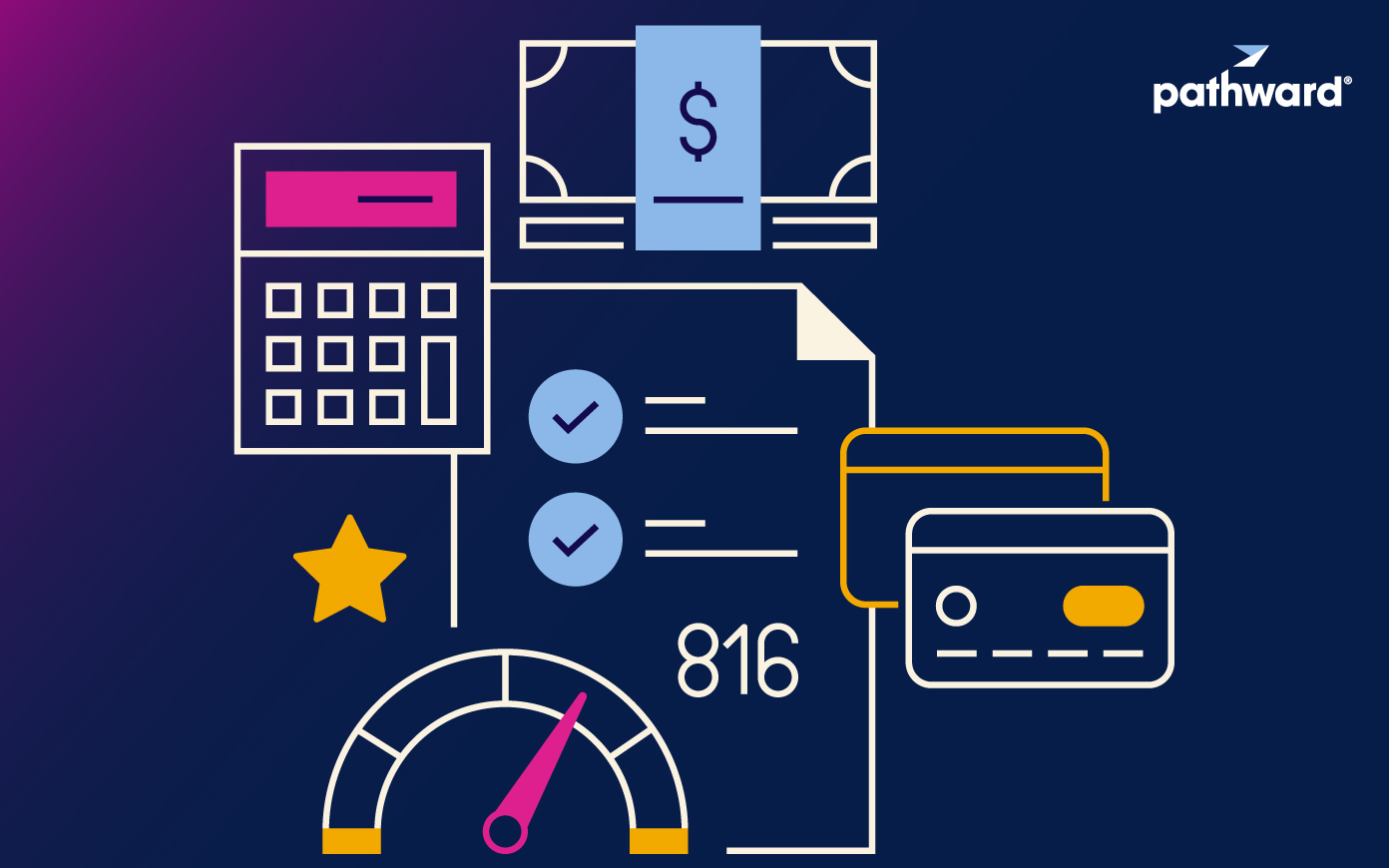
FDIC-Insured - Backed by the full faith and credit of the U.S. Government
- Investor Relations
- Careers
-
Login
- Online Banking
- Commercial Finance
Business Credit Scores Explained: All You Need to Know

Just as we all have a personal credit score, your business also has its own credit score that plays a critical role in long-term success. A strong business credit score can open doors, helping you qualify for better terms on business loans, insurance, and vendor accounts. Lenders and suppliers view high credit scores as a sign that your business is responsible and trustworthy. Conversely, a low business credit score can limit your options, making it harder to get approved for financing or to negotiate favorable payment terms.
So how do you build and maintain great business credit? This guide covers the basics of business credit, how scores are calculated, and how to build and maintain a strong credit profile.
What is a business credit score?
A business credit score functions like a company’s financial report card, measuring how well you handle financial obligations. Key factors include:
- Payment History: Are your bills paid on time?
- Credit Utilization: How much credit are you using compared to the credit you have available?
- Public Records (Red Flags): Bankruptcies, tax liens, or other financial issues
- Company Size and Industry Risk: Larger or less-risky businesses tend to score better
There are three main companies that keep track of business credit scores: Dun & Bradstreet, Equifax, and Experian.
Each of these companies creates different types of scores that help other businesses decide if they want to work with you. There’s also something called the FICO Small Business Scoring Service (SBSS), created by the Fair Isaac Corp, which uses information from those three main companies to create their own score, typically for lenders like the Small Business Administration (SBA).
Can your personal credit score impact your business credit score?
While personal and business credit scores are separate, your personal credit can sometimes impact your business credit. For example, FICO SBSS does consider your personal credit when evaluating your business.
When applying for business credit cards or loans, lenders often require a personal guarantee, meaning they will check your personal credit score. Why? Because when you apply, the bank wants a personal promise you’ll pay them back if your business can’t. Having good personal credit may make your financial journey easier. But even if your personal credit isn’t perfect, there is a workaround through trade lines, which are payment arrangements with suppliers that don’t require a personal credit check.
How your score is calculated
Your business credit score is based on several factors:
1. Payment History: On-time payments positively affect your score, while late payments lower it.
2. Credit Utilization: Using less than 30% of your available credit is ideal.
3. Credit Age: Older credit accounts suggest stability and improve scores.
4. Public Records: Bankruptcies, liens, or judgments can significantly lower your score.
5. Industry Risk: Some industries are deemed riskier than others.
What is a good business credit score?
Each credit bureau evaluates business credit in its own way, but generally higher scores indicate stronger credit. Here’s how the scoring ranges differ for each bureau:
Credit Bureau | Score Type | Score Range | What It Means |
Dun & Bradstreet | PAYDEX | 1 – 100 | 80+ is low risk for payments; below 50 indicates high risk |
| Failure Score | 1,001 – 1,875 | Lower scores indicate higher bankruptcy risk within 12 months |
| Delinquency Score | 1 – 5 | Lower scores indicate lower risk of late payment or bankruptcy |
Equifax | Payment History Score | 0 – 100 | Higher scores reflect on-time payments |
| Credit Risk Score | 101 – 992 | Higher scores indicate lower credit risk |
| Business Failure Score | 1,000 – 1,880 | Lower scores signal higher risk of business failure |
Experian | Business Credit Score | 1 – 100 | Higher scores are better |
| Financial Stability Rating | 1 – 5 | Lower ratings signal greater financial stability |
FICO | Small Business Scoring Service (SBSS) | 0 – 300 | A score of 155+ is generally needed for SBA loan, though criteria vary by bank |
Benefits of a good business credit score
A strong business credit score can unlock new opportunities for your company. Here’s why it matters:
Better Financing Options: With good credit, you may be eligible for lower interest rates, which means more money stays in your business. Banks are more likely to approve your loan applications and offer flexible repayment terms that work with your business schedule. Plus, they’ll often trust you with access to higher credit limits.
You can score better deals with suppliers: Suppliers review your business credit to determine payments terms for goods or services. Strong credit can secure extended payment periods, such as 60 or 90 days, while weaker credit may require upfront payment or shorter terms, like 30 days. pay. Longer payment windows can improve your business’s cash flow.
You can save money on business insurance: Insurers often offer lower premiums to businesses with good credit, as they are seen as less risky and more stable. This can lead to significant cost savings over time, especially as your business grows and requires additional coverage.
How to Check Your Business Credit Score?
Here’s how to access your business credit score:
Dun & Bradstreet: Offers a free report and additional paid options for deeper insights
Experian: A one-time report or an annual subscription are available for a fee
Equifax: Provides scores only when applying for credit and you need to contact them directly to provide you’ve applied for business credit
FICO SBSS: This score isn’t directly accessible, but monitoring your business credit reports can help you estimate your standing
How to Improve Your Business Credit Score
Building strong business credit takes time and strategy. Here’s a few essentials to maintain or improve upon it.
Pay Bills Early: On-time payments boost scores, and early payments can earn additional creditworthiness points
Working with Report Vendors: Choose suppliers that report payment activity to credit bureaus
Monitor Your Credit Reports: Regularly checking for inaccuracies or changes ensures your scores reflect your actual financial health
Use Credit Responsibly: Keep credit utilization below 30% and avoid maxing out credit lines
Pathward is here to help
Building great business credit takes time, consistency, and dedication. The payoff in terms of better financing options and business opportunities makes it all worthwhile.
Our experienced teams work with diverse businesses across all stages of their financial journey. Whether you’re building credit or leveraging a strong financial foundation, reach out to Pathward if you’re interested in exploring financing options to help unlock opportunities and support long-term growth.


